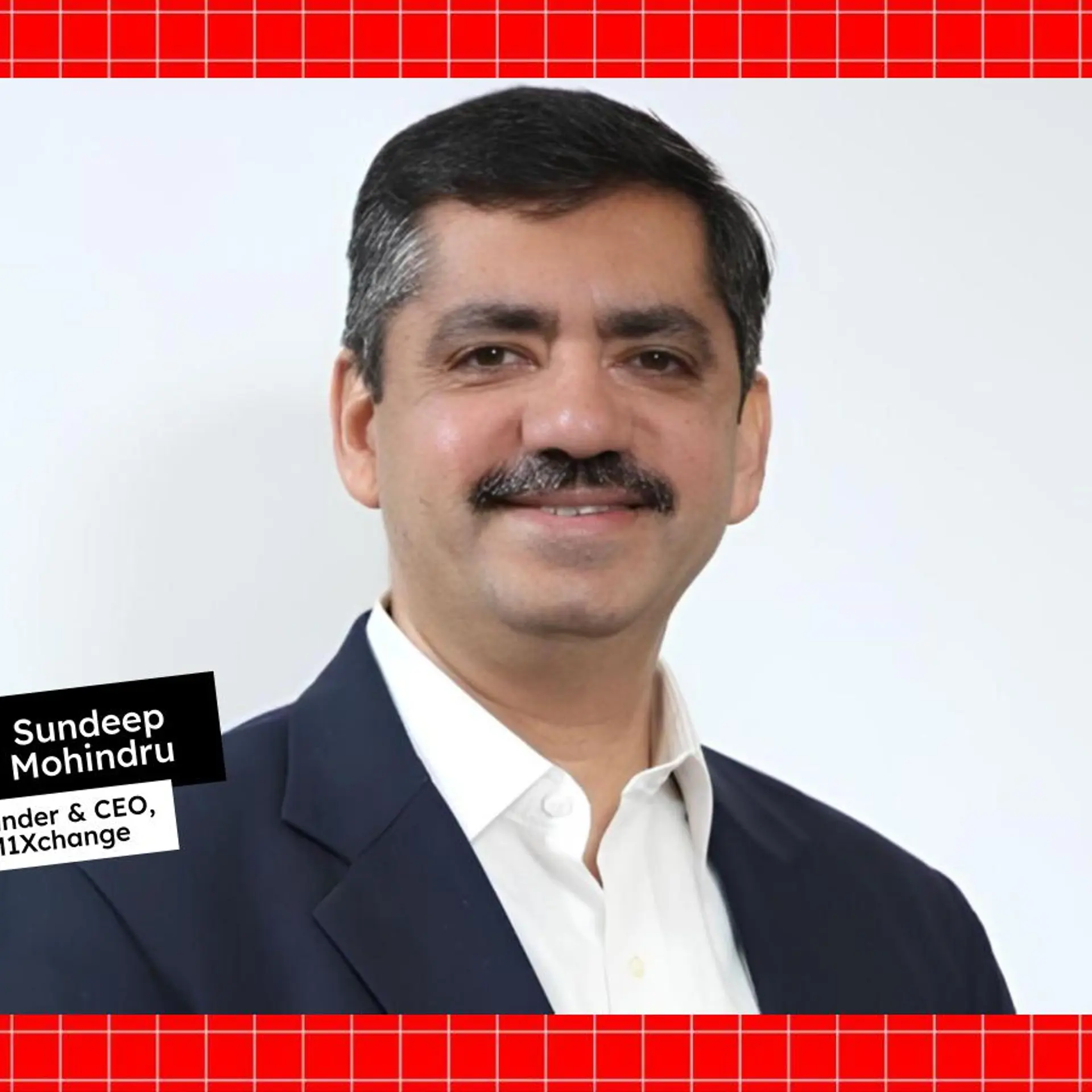Startup Guide Stockholm: how this Nordic hub excels in music-tech, mobile, and more
This guidebook covers emerging startups, accelerators, co-working spaces, and support institutes in Scandinavia’s major business hub.
The Startup Guide series of books, launched in 2014 by Copenhagen-based publisher Sissel Hansen, covers over 25 cities such as London, Barcelona, Lisbon, Oslo, and Miami. See our reviews of the guidebooks for New York, Berlin, Munich, Zurich, Paris, Johannesburg, Cairo, Tokyo, Bangkok, and Singapore.
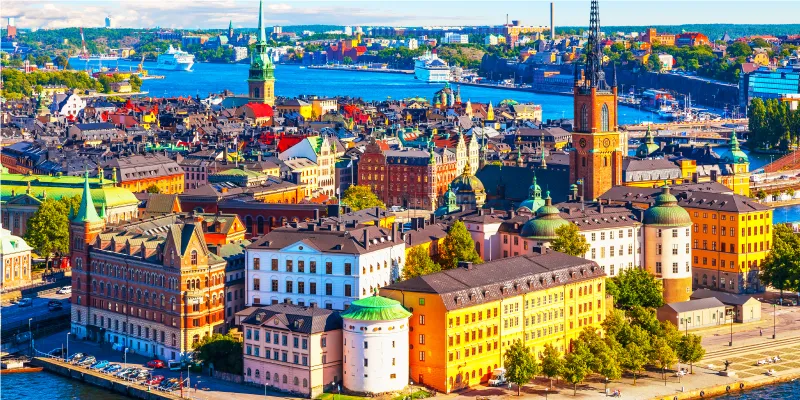
Startup Guide Stockholm is spread across 200 pages and makes for an informative and entertaining read, with profiles of founders, co-working spaces, accelerators, and other ecosystem players. Supported by SUP46 as partners, the book also includes a three-page glossary of entrepreneurship terms.
Stockholm is the birthplace of companies such as Skype, Klarna, King (maker of Candy Crush) and Mojang (creator of Minecraft), Sissel begins. They all went “from small startups to billion-dollar juggernauts”. Music streaming giant Spotify is also based in the Swedish capital.
Stockholm ranks high in terms of number of unicorns per capita. “Perhaps the city’s small population has pushed startups to look beyond its borders and consider a global approach from day one,” she adds.
The city has a reputation for startups in gaming, music streaming, mobile, and fintech. There is extensive governmental support for startups, and the society is less hierarchical than many others. “The Swedes also take work-life balance very seriously,” Sissel adds.
The guidebook’s local community partner - SUP46 (Start-Up People of Sweden) – also explains that Swedes have a passion for technology, a determination to build the best products, and “incredible focus combined with modesty”.
Overview
One section provides an overview of the city’s environment, such as landscape (beautiful), culture (non-hierarchical), people (forward-looking, friendly but reserved), language (English is widely spoken), public transport (extensive, including trams and ferries), cycling (popular), and tech habits (early adopters).
The cost of living is high, and eating out is expensive. Social trust is high, and people act responsibly. Gender equality is higher than most other societies. Starting a business in Sweden can be relatively simple as well.
The city is home to renowned education and research institutes, which also offer extensive support for startups. They include Royal Institute of Technology (KTH), Karolinska Institutet (KI), Stockholm University (SU), Södertörn University, and Stockholm School of Economics.
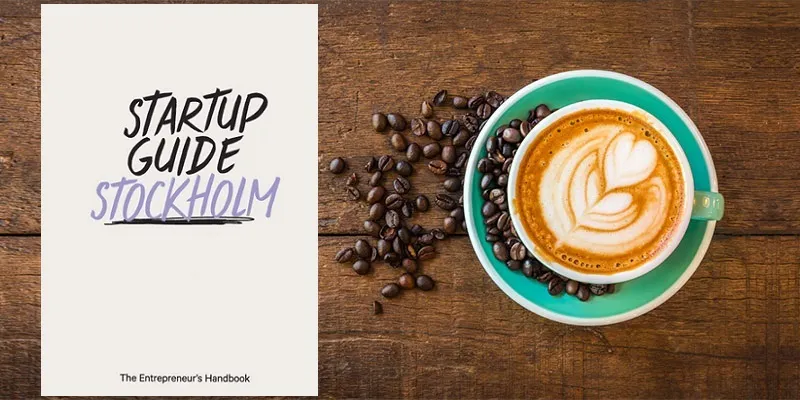
I. Startup profiles
One section of the book profiles 10 startups based in Stockholm. They include Amuse, a music company that empowers independent musicians via music distribution services.
Airinum provides solutions that help breathe clean air. The founder, Alexander Hjertstrom, came up with this idea when he was exposed to pollution during a visit to India. NuvoAir has developed spirometers with digital capabilities to help people suffering from respiratory conditions and streamline clinical decision making.
Gleechi has developed algorithms for robots to help them analyse the shape and orientation of an object. These are translated into instructions for grasping the objects. The algorithms can be extended to other domains like healthcare, machine operation, and virtual training.
Hi Henry is an AI-powered office assistant to improve productivity. Mentimeter helps professionals develop powerful interactive presentations to increase audience engagement.
Watty provides homes with data solutions for monitoring and reducing energy usage. Worldfavor helps companies monitor their environmental sustainability metrics, and compare them with others like suppliers and portfolio companies.
United Invitations is a people-matching and booking platform to enable people to connect over cooked meals in their homes (such as newcomers and natives). Stilla Motion has developed safety products that alert users when valuables from their bags are removed or stolen.
Many of these startups have raised funds from Kickstarter, Indiegogo, Cleantech Invest, Spiltan, and EQT Ventures. Some have been supported by EIT Digital Accelerator, 500 Startups, Sting accelerator, and Ax Foundation.
II. Startup ecosystem
One section of the book profiles the support system for startups, ranging from incubators to accelerators. For example, Amplify Sweden is the first Swedish incubator to support music business and tech startups. It is located in the campus of the Royal College of Music Stockholm (KMH).
Sting, the leading accelerator and incubator, offers four programmes for startups called Incubate, Accelerate, Open Coaching, and Test Drive. It takes stock options of two percent for the accelerator programme and six percent for the incubator programme.
Ericsson ONE is the open innovation platform and incubator of the Swedish multinational telecom giant Ericsson. It runs six-month cohorts twice a year, with a focus on areas like 5G and IoT.
Foodtech Village is an accelerator with a six-month programme for foodtech and agtech startups. It organises a showcase of foodtech companies during Stockholm’s annual food festival, Smaka på (Taste of Stockholm). Startups also participate in the GastroNord food industry trade show and Sweden Demo Day ‘un-conference.’
KTH (Royal Institute of Technology, also known as the ‘MIT of Stockholm,’) runs a ‘pre-incubator’ for the projects of professors, researchers, and students. The Stockholm School of Entrepreneurship (SSES) runs the Affinity Accelerator. The Founder Institute runs a 14-week program, and Hyper Island School offers a Digital Media Creative Program.
Ignite Sweden has a collaborative programme supported by THINGS, STING, LEAD, MINC and Uminova Innovation. It is funded in part by Vinnova, the Swedish government’s innovation arm.
Managers of these support institutes advise aspiring entrepreneurs to develop an understanding of their core strengths, so they can form teams with complementary strengths. They should develop passion for the problem rather than a specific technology or solution.
Understanding customer needs deeply is key, and calls for “getting out of the basement.” Founders should display endurance and patience in the face of scarce funding and waves of new challenges.
Being open to new ideas, continuous learning, willingness to be coached, and collaboration with the ecosystem are important in the long run. The business offering should be unique and scalable, which calls for flexibility and a growth mindset.
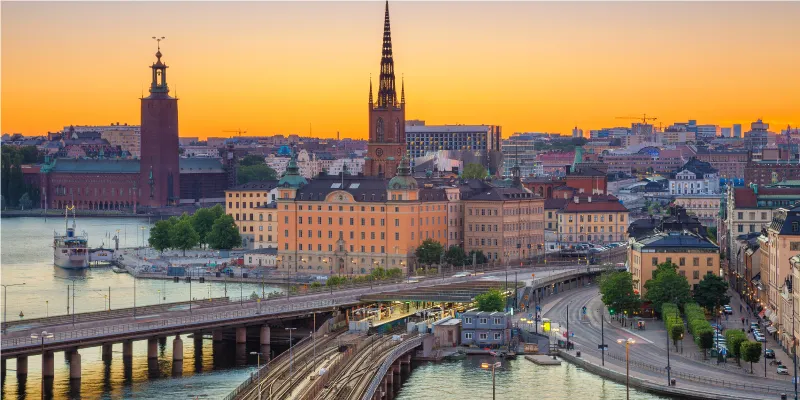
III. Co-working spaces
Stockholm has a number of co-working spaces, many of which specialise in certain industries. They include H2 Health Hub (health tech) and STHLM Music City (for music creators and music tech startups; member company of the incubator Amplify).
Impact Hub Stockholm supports social entrepreneurs focussed not just on profit, but people and the planet as well. Norrsken House (supported by the Norrsken Foundation) helps non-profits and impact entrepreneurs who want to run socially-responsible business.
Tua Asplund, CEO of A House, has a passion at the intersection of business, creativity, and placemaking. The co-working space specialises in tech, film, journalism, and art.
Isadora Hellegren, who heads Goto 10, is the author of A History of Crypto-Discourse: Encryption as a Site of Struggles to Define Internet Freedom. She is a steering committee member of the Global Internet Governance Academic Network (GigaNet). The co-working space has support from the Internet Foundation in Sweden (IIS).
Openlab is supported by the City of Stockholm, Stockholm County Council, Stockholm County Administrative Board, KTH Royal Institute of Technology, Stockholm University, Södertörn University, and the Karolinska Institute. The focus is on the larger challenges facing society. Ida Niskanen, communications manager, is also the co-ordinator of the digital ideation platform called DevelopYourCity.com.
SUP46 (Startup People of Sweden) supports startups with co-working space, industry connects, matchmaking with investors, media outreach, recruitment, and international expansion. Its alumni sometimes become angel investors in the startups.
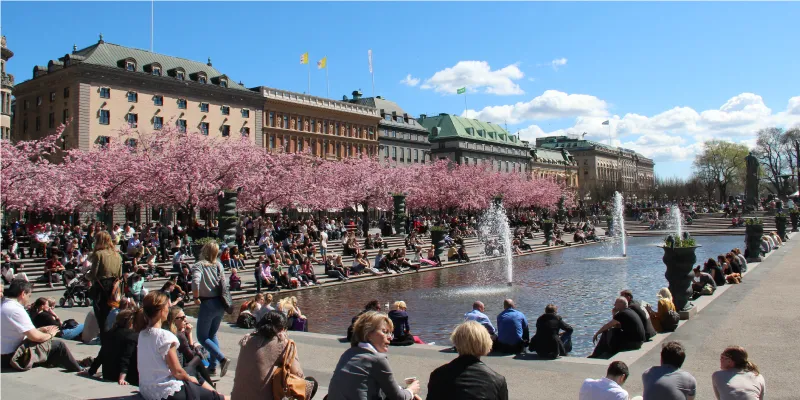
IV. Expert insights
One section of the book provides tips from experts representing large firms, banks, and startup support initiatives in the city. The advice covers market expansion, industry connects, and customer focus.
“Perform a market analysis and do your due diligence,” advises Jonas Almeling, Head of Innovations and Ecosystems at Business Sweden. Founders should understand the business culture and communication style in the target markets.
Business Sweden helps local companies with global sales, and international companies to invest and expand in Sweden. Its Leap Accelerator runs batches of five to ten companies each, and accepts around a hundred companies each year.
Founders should be curious, open-minded, and pro-active, advises Natanael Sijanta, Director, Daimler AG’s me Convention. The event is a collaboration between Mercedes-Benz and the South by Southwest festival.
“People at smaller startups need to make more of an effort to connect with others,” he adds. The event features speakers from startup ecosystems around the world, and offers business development opportunities overseas.
“Setting up internationally takes a lot of time, effort, and resources – and time, of course, is one of the scarcest resources for entrepreneurs,” observes Agnes Malm, growth and impact lead for Sweden at Danske Bank.
Scaling too quickly without preparation in place can lead to legal and cultural challenges later, she cautions. The bank has teamed up with nHack Ventures in Shanghai for startups expanding to China. The bank also runs The Hub, an online platform for growth-stage startups.
“Be focussed when it comes to the investors you aim to meet rather than getting in touch with hundreds of them,” advises Ted Persson, operating partner at EQT Ventures. Its portfolio of over 30 companies includes Finnish games developer, Small Giant Game.
Data centricity and customer focus are key for startups in the travel sector, explains Didrik Fjeldstad, VP of Brand and Marketing at SAS (Scandinavian Airlines). In mature sectors, startups should not offer generic products or services.
SAS runs SAS Labs, a programme connecting travel industry leaders with startups. It also offers SAS Scholarships for entrepreneurs with promising ideas.
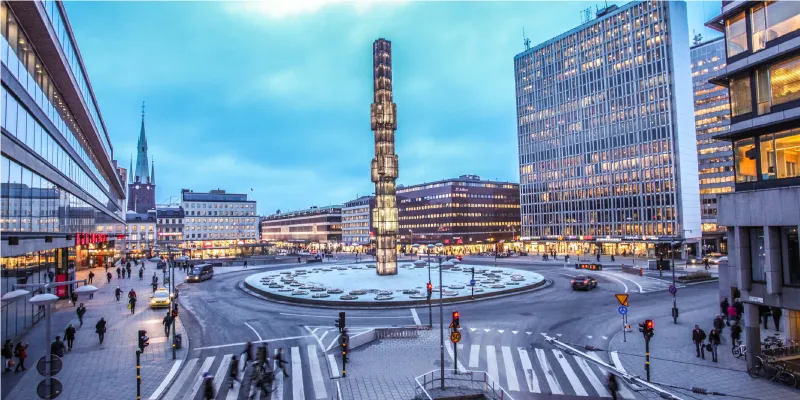
V. Founder advice
The book features interviews with founders of five startups. The profiled founders trace their entrepreneurial journeys, advice received, lessons learnt, and tips for the next wave of aspiring entrepreneurs.
Amir Marandi, an Iranian-Swedish entrepreneur, founded Zaver as a P2P payment platform. He got the idea during his college days when he noticed students having problems paying for gadgets and even cars they were selling to each other.
“I think that a lot of startups don’t understand the potential in a team; as a team, you can achieve much more than as individuals,” he observes. He also cautions founders not to try to satisfy everyone in every decision.
Startups should be agile and make moves quickly. “You don’t have time for over-calculating. Moving fast is what makes you different from the large organisations you’re going to compete with,” Amir advises.
Elsa Bernadotte founded Karma, a startup that fights food waste by creating a marketplace that enables restaurants and grocery stores to sell unsold food at a discount direct to consumers. Her earlier startup was Pop Fruits, a healthy ice-cream alternative.
She urges founders to embrace MVP-thinking early on, and become “super customer-obsessed.” Market insights help; her best decision was pivoting from a deals platform to focusing on food waste, and expand from restaurants to grocery stores.
Elsa advises startups to be data-driven, not just data-informed. “Embrace change as part of a learning process,” she adds.
Imad Elabdala, a Syrian refugee, is the Founder and CEO of Kidnovation. It is a media innovation lab for displaced children, leveraging the power of storytelling to help children deal with and overcome trauma. Imad himself had suffered from post-traumatic stress disorder, and explored story-based psychological methods such as cognitive behavioral therapy, exposure therapy, and psychodynamic therapy.
“There’s still a stigma surrounding refugees and their trustworthiness,” he laments. He benefitted from the activities of Impact Hub Stockholm and the Reach for Change’s incubation programme.
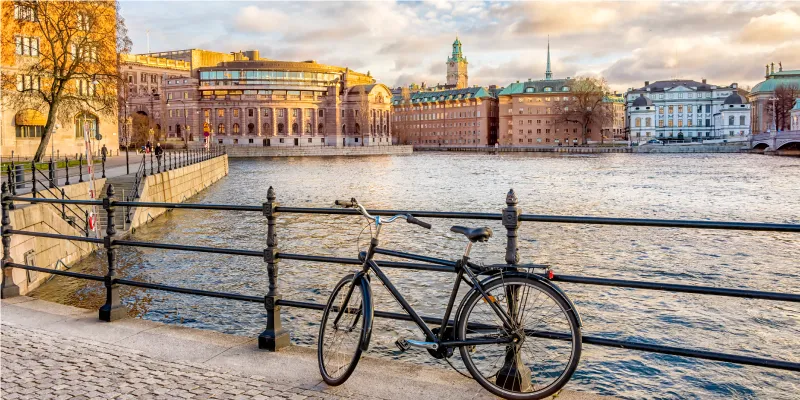
Joel Hellermark founded Sana Labs to harness the power of machine learning to help online education providers make their content more personalised for each student. Education is one of the most data-rich industries in the world and lends itself very well to ML, he explains.
“I think if you’re a B2B company, your highest priority should be getting case studies in your first year of existence. In the beginning, just proving the value is the most important aspect,” Joel advises.
“Look for those problems where new data sets and technology have come to life, and where there’s a problem that desperately needs to be solved,” he adds.
Sofie Lindblom was formerly the innovation manager at Spotify, and then founded innovation consultancy firm ideation360. Leadership, culture, workflow platforms, data-driven analysis, change programmes, and activities like hackathons are important for innovation.
“A lot of people want to be entrepreneurs, but it’s not very glamorous – at least, not in the beginning,” she cautions. “We have to remember that most startups never survive their one-year birthday; and if they do, they don’t survive their second year birthday. It’s very competitive,” Sofie adds.
The founders appreciate Stockholm as a startup hub because of lots of curious early adopters who want to test new products, access to incubators and co-working spaces, and plenty of networking events to meet hires and investors. There is a collaborative environment with many role models as well.
But the city is quite expensive to live in, and some founders observe that people are “friendly but not very open.” Still, the city has good momentum with high quality of talent and investors.
As valuable advice they have received, the founders cite the importance of focus, a growth mindset, becoming comfortable about being uncomfortable, and finding people who are smarter than you in their own fields.
Important skills for founders to have are the ability for synthesis, adaptability, learning fast, connecting the dots, and seeing the bigger picture. They should dare to make mistakes, and not be afraid to ask for help when in trouble.
The book ends with a directory of useful resources for startups, meetup groups, and events. These include formal and informal events such as Expats Club, Grow International, Stockholm Entrepreneurs, Startup Grind, Stockholm Tech Meetup, and Silicon Vikings. Other useful events are Femtech, Sting Day, Stockholm Tech Fest, Sweden Foodtech, Symposium, Startup Gala, and Venture Cup.
In sum, the book provides informative and entertaining insights into Stockholm’s startup ecosystem, as well as a useful framework for other cities to reflect on and improve their own startup ecosystems.
Edited by Megha Reddy






![[Funding alert] Swedish investor leads $21.6M Series B round in payments startup Juspay](https://images.yourstory.com/cs/2/b87effd06a6611e9ad333f8a4777438f/Imaget78r-1585817065382.jpg?fm=png&auto=format&h=100&w=100&crop=entropy&fit=crop)



